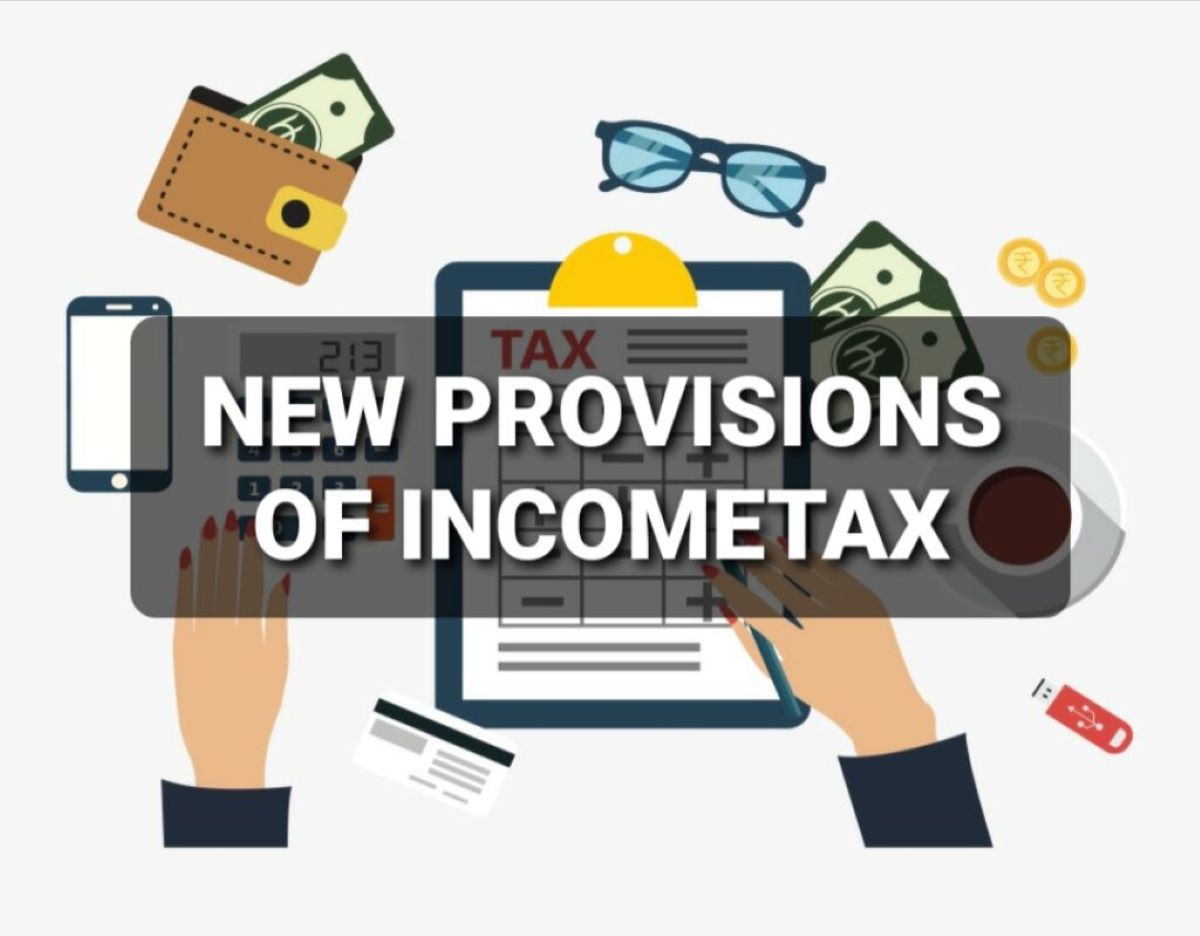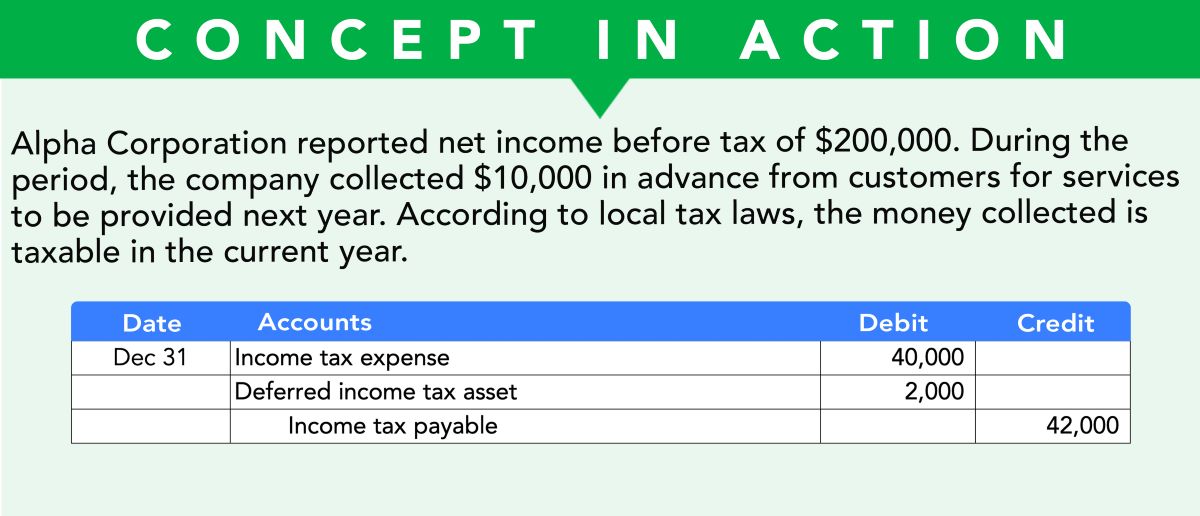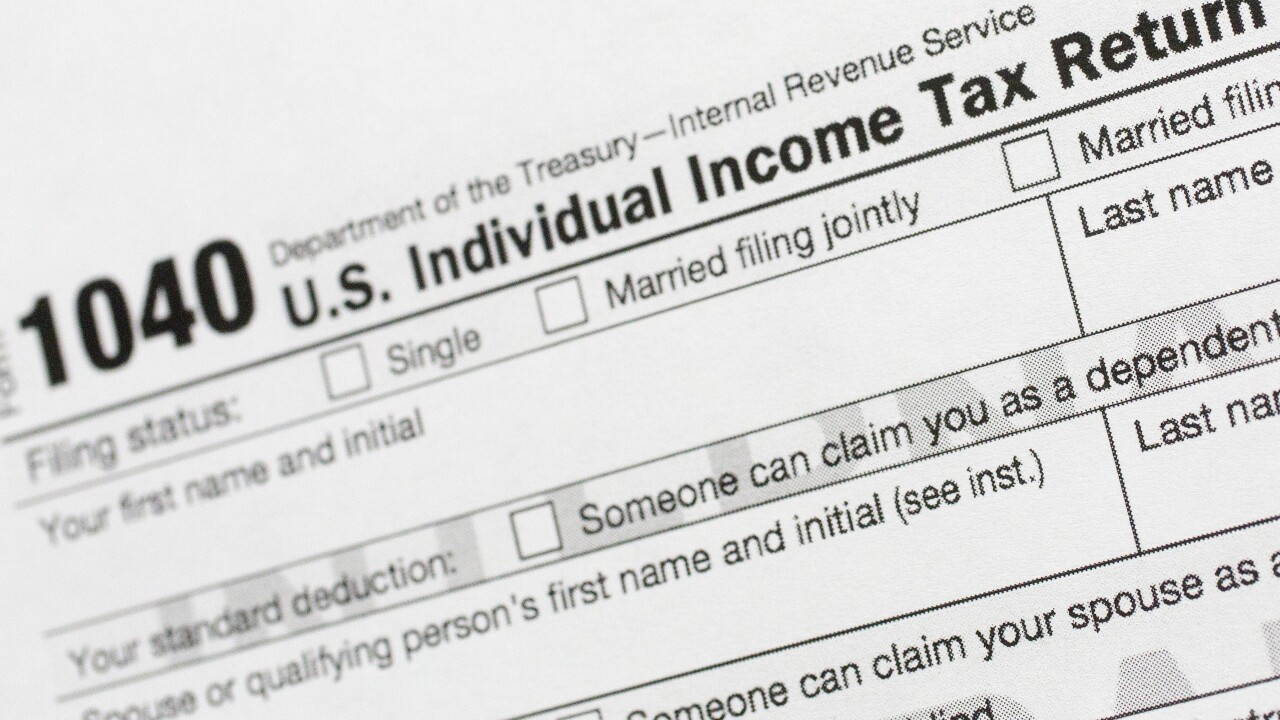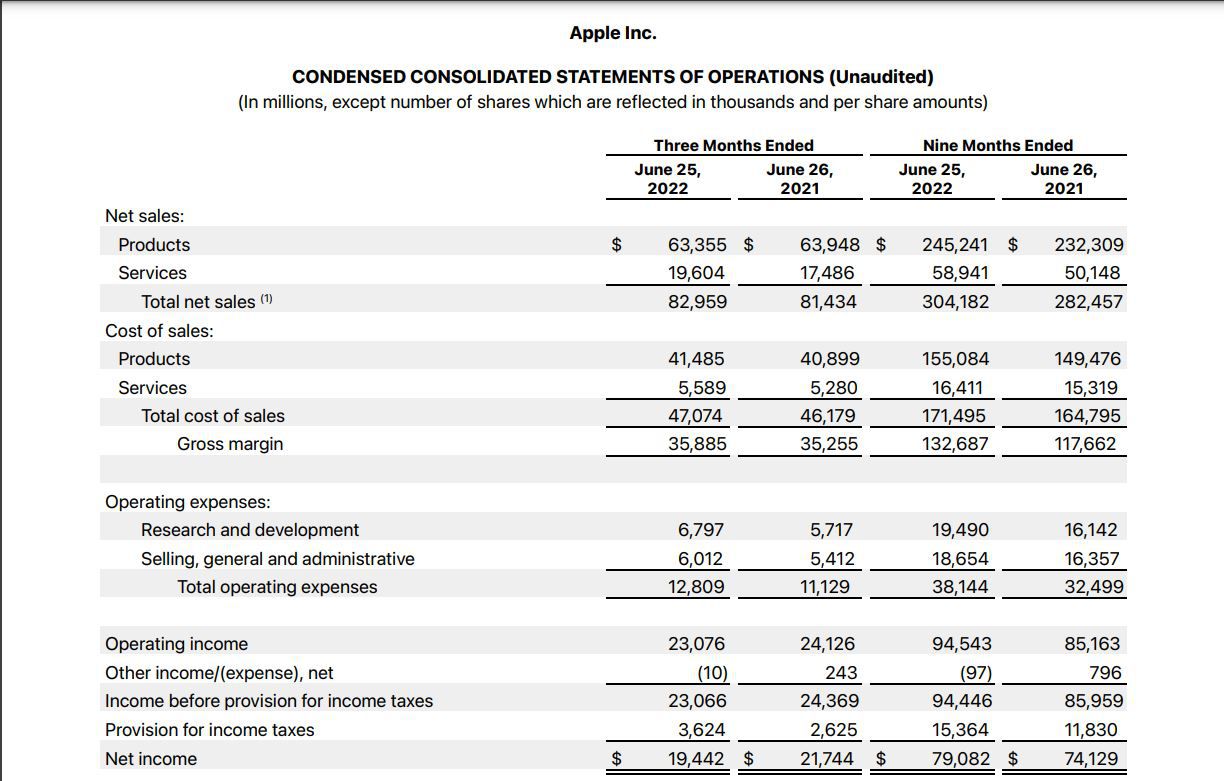

Finance
How Much Is Alabama Income Tax
Modified: February 21, 2024
Learn about Alabama income tax rates and how much you might owe. Understand the finance aspect of managing your income and taxes in Alabama.
(Many of the links in this article redirect to a specific reviewed product. Your purchase of these products through affiliate links helps to generate commission for LiveWell, at no extra cost. Learn more)
Table of Contents
Introduction
Alabama Income Tax is an important aspect of the financial landscape for individuals and businesses in the state of Alabama. Understanding the nuances of state income tax is crucial for residents to effectively manage their personal finances and for businesses to navigate the tax landscape responsibly. In this article, we will explore the various aspects of Alabama Income Tax, including the tax rates, deductions, and credits available, as well as the process of filing taxes in Alabama.
Whether you are a newcomer to the state or a longtime resident, having a clear understanding of Alabama Income Tax will help you make informed financial decisions and minimize your tax burden. This article aims to provide a comprehensive overview of Alabama Income Tax and answer common questions regarding its calculation and filing procedures.
From determining your taxable income to taking advantage of available deductions and credits, we will delve into the specifics of Alabama Income Tax to ensure you have the knowledge needed to navigate the process effortlessly. Additionally, we will touch upon the various resources and forms available to individuals and businesses in Alabama for filing their income tax returns accurately and efficiently.
While taxes can be a complex subject, we will strive to present the information in a clear and concise manner, breaking down the key components of Alabama Income Tax into easily digestible sections. By the end of this article, you will have a solid understanding of Alabama Income Tax regulations and be better equipped to manage your tax obligations.
So, whether you are a resident looking to optimize your tax payments or a business owner seeking to comply with the state’s tax laws, let’s embark on this journey to demystify Alabama Income Tax and empower you to make informed financial decisions.
Understanding Alabama Income Tax
Alabama Income Tax is a progressive tax system that requires taxpayers to pay a percentage of their income to the state government. It is important to understand how Alabama Income Tax works and the factors that affect the amount you owe.
For individuals, Alabama follows a graduated income tax system, which means that tax rates increase as income levels rise. This progressive tax structure ensures that individuals with higher incomes pay a greater percentage of their earnings in taxes. As of the time of writing, Alabama has three income tax brackets:
- For individuals earning up to $500, the tax rate is 2%.
- For individuals earning between $501 and $3,000, the tax rate is 4%.
- For individuals earning over $3,000, the tax rate is 5%.
It is essential to note that these rates are subject to change, so it is advisable to consult the Alabama Department of Revenue or a tax professional for the most up-to-date information.
In addition to the progressive tax rates, Alabama allows for a standard deduction and personal exemptions. The standard deduction is a predetermined amount that individuals can deduct from their taxable income, reducing their overall tax liability. As of the time of writing, the standard deduction for single filers is $2,500, married couples filing jointly can claim a standard deduction of $7,500, and married individuals filing separately can claim a standard deduction of $3,750.
Personal exemptions, which were previously available, were phased out by the Tax Cuts and Jobs Act at the federal level and are no longer applicable for Alabama income tax purposes.
Understanding how taxable income is calculated in Alabama is key to navigating the state’s income tax system. Generally, taxable income is determined by subtracting allowable deductions and credits from your total income. It is important to note that certain types of income, such as Social Security benefits and retirement income, may be partially or fully exempt from Alabama income tax.
It is advisable to consult a tax professional or the Alabama Department of Revenue to fully understand the specific deductions and credits available and to ensure accurate calculation of your taxable income.
In the next sections, we will explore the various deductions and credits available to individuals and delve into the process of filing Alabama Income Tax returns.
Alabama Income Tax Rates
Understanding the tax rates is crucial for individuals and businesses when planning their finances and estimating their tax liabilities. Alabama has a graduated income tax system, meaning that tax rates vary based on income levels. Currently, Alabama has three income tax brackets:
- For individuals earning up to $500, the tax rate is 2%.
- For individuals earning between $501 and $3,000, the tax rate is 4%.
- For individuals earning over $3,000, the tax rate is 5%.
It is important to note that these rates are subject to change, so it is essential to consult the Alabama Department of Revenue or a tax professional for the most up-to-date information.
These progressive tax rates mean that as a taxpayer’s income increases, they will be subject to higher tax rates on the portion of their income that falls within the higher brackets. For example, if an individual’s taxable income is $4,000, the first $500 will be taxed at 2%, the portion between $501 and $3,000 will be taxed at 4%, and the remaining $1,000 will be taxed at 5%.
It is important to understand that these tax rates are applied to your taxable income, which is the income that remains after deducting allowable deductions and credits. By optimizing deductions and credits, individuals and businesses in Alabama can minimize their taxable income and reduce their overall tax liability.
Additionally, it is worth noting that Alabama imposes a flat rate of 5% on income from dividends, interest, and capital gains.
Overall, familiarizing yourself with Alabama’s income tax rates and brackets is essential for planning your finances and ensuring compliance with the state’s tax laws. By understanding how these rates apply to your income, you can effectively manage your tax obligations and make informed financial decisions.
Determining Alabama Taxable Income
Calculating your taxable income is a crucial step in determining your Alabama income tax liability. Taxable income is the amount of income that is subject to Alabama income tax after various deductions and exemptions have been taken into account.
To determine your taxable income in Alabama, start with your total income, which includes wages, salaries, self-employment income, rental income, capital gains, and any other sources of income. Then, subtract any allowable deductions and exemptions to arrive at your taxable income.
Some common deductions that may be applicable in Alabama include:
- Expenses related to self-employment or business activities
- Contributions to retirement accounts
- Alimony payments
- Student loan interest
- Real estate taxes
- Mortgage interest
It is important to note that Alabama doesn’t conform to all federal deductions, so it’s advisable to consult the Alabama Department of Revenue or a tax professional for the specific deductions that apply at the state level.
Once you have determined your taxable income, you can refer to the Alabama income tax rates and brackets to calculate the amount of tax you owe. Remember that Alabama has a progressive tax system, meaning that different portions of your income will be subject to different tax rates.
It’s important to keep accurate records of your income and deductible expenses to ensure accurate calculation of your taxable income. This will not only help you file your taxes correctly but also maximize the deductions and exemptions you’re eligible for, potentially reducing your tax liability.
Consulting a tax professional or utilizing tax software can be beneficial in navigating the complexities of determining your taxable income in Alabama. These resources can help ensure that you are fully informed about the deductions and exemptions available, allowing you to optimize your tax situation and minimize your tax obligation.
By understanding how to determine your taxable income in Alabama, you can effectively manage your finances and fulfill your tax obligations in a responsible manner.
Deductions and Credits
Deductions and credits play a significant role in reducing your Alabama income tax liability. By taking advantage of these deductions and credits, taxpayers can lower their taxable income, resulting in a reduced tax obligation. Let’s explore some common deductions and credits available in Alabama.
Deductions:
1. Standard Deduction: Alabama offers a standard deduction to filers, which reduces their taxable income. As of the time of writing, the standard deduction for single individuals is $2,500, while married couples filing jointly can claim a standard deduction of $7,500, and married individuals filing separately can claim $3,750.
2. Itemized Deductions: Alternatively, taxpayers can choose to itemize their deductions if their total deductible expenses exceed the standard deduction. Common itemized deductions include mortgage interest, real estate taxes, medical expenses, charitable contributions, and state and local income taxes.
3. Educator Expenses: Eligible educators in Alabama can deduct up to $250 for unreimbursed classroom expenses incurred throughout the tax year.
Credits:
1. Child and Dependent Care Credit: Taxpayers who incur expenses for the care of a qualified child or dependent may be eligible for a credit on their Alabama income tax. The credit percentage is based on a sliding scale depending on the taxpayer’s income.
2. Foreign Tax Credit: Individuals who have paid income taxes to a foreign country on income that is also subject to Alabama income tax may be eligible for a credit to offset the double taxation.
3. Education Credits: Alabama offers education-related credits, such as the Alabama CollegeCounts 529 Plan Contributions Credit and the Alabama Accountability Act Credit, designed to assist individuals and families with educational expenses.
These are just a few examples of deductions and credits available in Alabama. It is important to thoroughly review the qualifications, limitations, and documentation requirements for each deduction and credit to ensure compliance with state regulations.
When preparing your Alabama income tax return, consider consulting a tax professional or utilizing tax software to help identify all available deductions and credits specific to your situation. This will ensure that you maximize your tax savings and accurately report your deductions and credits to the Alabama Department of Revenue.
By taking advantage of these deductions and credits, individuals and businesses in Alabama can lower their tax liability and keep more of their hard-earned money.
Filing Alabama Income Tax
When it comes to filing your Alabama income tax, it is important to understand the process and the various options available. Let’s explore the key steps and considerations for filing your Alabama income tax return.
Filing Status:
The first step in filing your Alabama income tax return is determining your filing status. Alabama recognizes the same filing statuses as the federal government: single, married filing jointly, married filing separately, head of household, and qualifying widow(er) with dependent child. Your filing status will affect your tax rates, deductions, and eligibility for certain credits.
Choosing a Filing Method:
Alabama taxpayers have the option to file their income tax returns electronically or by mail. The Alabama Department of Revenue encourages e-filing as it offers many benefits, including faster processing, reduced errors, and the option to receive your refund via direct deposit.
Gathering Required Documents:
Before starting the filing process, gather all the necessary documents and information, such as your W-2s, 1099s, and any supporting documents for deductions and credits. Having these documents on hand will ensure accuracy and smooth completion of your tax return.
Completing the Alabama Income Tax Return:
Whether you opt for electronic filing or paper filing, carefully follow the instructions provided by the Alabama Department of Revenue. Fill out all required sections of the tax return, ensuring accurate reporting of income, deductions, and credits. Double-check the information entered to avoid any errors or omissions.
Payment of Taxes Due:
If you owe taxes to the state of Alabama, payment can be made electronically through the Alabama Department of Revenue’s official website or by mail using the provided payment voucher. It is important to submit the tax payment by the due date to avoid penalties and interest charges.
Extension of Filing Deadline:
If additional time is needed to file your Alabama income tax return, you can request an extension by filing Form 4868AL. However, it is important to note that an extension to file does not grant an extension of time to pay any taxes owed. It is crucial to estimate your tax liability and make any required payment by the original due date to avoid penalties and interest.
Retaining Records:
Keep copies of your filed Alabama income tax return, along with all supporting documents, for at least three years. These records may be necessary in case of an audit or if you need to amend your return in the future.
Seeking Professional Assistance:
While many individuals can successfully complete their Alabama income tax return on their own, it may be beneficial to seek the assistance of a tax professional or use reputable tax software for complex tax situations. They can provide guidance, ensure accuracy, and help maximize available deductions and credits.
By understanding the process and diligently following the guidelines set by the Alabama Department of Revenue, you can successfully file your income tax return and fulfill your tax obligations in a timely and efficient manner.
Alabama Income Tax Forms
When it comes to filing your Alabama income tax return, you will need to use the appropriate tax forms provided by the Alabama Department of Revenue. Familiarizing yourself with the different forms available and understanding their purpose will simplify the filing process. Here are some of the main Alabama income tax forms you may encounter:
- Form 40: Alabama individuals use Form 40 to file their state income tax returns. This form is used for reporting income, deductions, and credits. It is available for different filing statuses, including single, married filing jointly, married filing separately, head of household, and qualifying widow(er) with dependent child.
- Form 40NR: Non-residents and part-year residents of Alabama use Form 40NR to report their income earned in the state and calculate their tax liability based on their residency status.
- Form 40X: If you need to amend a previously filed Alabama income tax return, you will use Form 40X. This form allows you to make corrections or provide additional information.
- Form 4952A-CDABP: This form is used by Alabama resident taxpayers who claimed federal itemized deductions that were disallowed for state income tax purposes. It calculates the difference between federal and Alabama itemized deductions.
- Form 859: Individuals who are residents of Alabama but work in another state may need to file Form 859 to claim a credit for taxes paid to the other state.
- Form 40V: This is the payment voucher that accompanies your Form 40 if you are mailing a payment to the Alabama Department of Revenue.
These are just a few examples of the various forms that may be applicable depending on your specific circumstances. It’s important to consult the Alabama Department of Revenue or a tax professional to determine which forms are required for your situation.
Additionally, individuals can choose to e-file their Alabama income tax returns using approved software or online platforms. Electronic filing offers several advantages, including faster processing and automatic error checking. The Alabama Department of Revenue provides a list of approved e-file providers on their website.
Remember to carefully read the instructions provided with each form and accurately complete all the required sections. Be sure to save copies of all forms and supporting documents for your records.
By utilizing the appropriate Alabama income tax forms and following the instructions provided, you can ensure a smooth and accurate filing process.
Common Questions about Alabama Income Tax
Whether you are a new resident of Alabama or have been filing Alabama income tax returns for years, it is common to have questions about the tax laws and procedures. Here are some frequently asked questions about Alabama income tax, along with their answers:
1. When is the deadline for filing Alabama income tax returns?
The deadline for filing Alabama income tax returns is typically April 15th of each year. However, it is advisable to verify the current year’s deadline with the Alabama Department of Revenue, as it can be subject to change.
2. Can I file my Alabama income tax return electronically?
Yes, you can file your Alabama income tax return electronically. The Alabama Department of Revenue encourages e-filing as it offers several benefits, including faster processing, reduced errors, and the option to receive your refund via direct deposit. There are approved e-file providers listed on the Alabama Department of Revenue’s website.
3. Are Social Security benefits taxable in Alabama?
No, Social Security benefits are not subject to Alabama income tax. Alabama follows the federal tax treatment of Social Security benefits, which means they are typically not taxed at the state level.
4. Can I deduct federal income taxes paid on my Alabama income tax return?
No, Alabama does not allow you to deduct federal income taxes paid on your state income tax return. The deduction for federal income taxes paid is not available at the state level.
5. Are there any tax credits available for education expenses in Alabama?
Yes, Alabama offers several tax credits for education expenses. These include the Alabama CollegeCounts 529 Plan Contributions Credit, which provides a credit for contributions made to a qualified 529 savings plan, and the Alabama Accountability Act Credit, which assists individuals and businesses in funding scholarships for eligible students.
6. What should I do if I can’t pay my Alabama income taxes in full?
If you are unable to pay your Alabama income taxes in full by the deadline, it is still essential to file your return on time to avoid penalties. You can then contact the Alabama Department of Revenue to discuss payment options, such as installment plans or other payment arrangements.
7. How long should I keep copies of my filed Alabama income tax returns?
It is recommended to keep copies of your filed Alabama income tax returns, along with any supporting documentation, for at least three years. These records may be necessary in case of an audit or if you need to amend your return in the future.
These are some of the common questions regarding Alabama income tax. For more specific or complex inquiries, it is advisable to consult the Alabama Department of Revenue or a tax professional. By staying informed and seeking guidance when needed, you can navigate the Alabama income tax system with confidence.
Conclusion
Understanding Alabama income tax is essential for individuals and businesses in the state. By familiarizing yourself with the tax rates, deductions, credits, and filing procedures, you can effectively manage your tax obligations and make informed financial decisions.
In this comprehensive guide, we have explored various aspects of Alabama income tax, including the progressive tax rates, determining taxable income, available deductions and credits, and the process of filing returns. We have also addressed common questions to provide clarity on important tax-related matters.
Remember, Alabama income tax is subject to change, so it is crucial to consult the Alabama Department of Revenue or a tax professional for the most up-to-date information. They can guide you through the ever-evolving tax laws and help you navigate any complexities you may encounter.
Whether you file your Alabama income tax electronically or by mail, ensure that you provide accurate information and meet the filing deadlines to avoid penalties. Retaining copies of your filed returns and relevant documents for at least three years is also important for reference and potential future amendments.
By maximizing available deductions and credits, you can potentially reduce your tax liability. However, it is essential to understand the qualifications, limitations, and documentation requirements for each deduction and credit to ensure compliance with state regulations.
Ultimately, with the knowledge gained from this guide and the assistance of professionals when needed, you can efficiently manage your Alabama income tax obligations, minimize errors, and stay compliant with state tax laws.
Remember, taxes are an important part of our society, enabling the functioning of essential public services. By fulfilling your tax obligations responsibly, you contribute to the well-being and progress of the state of Alabama.
We hope this comprehensive guide has provided valuable insights and empowered you to navigate the complexities of Alabama income tax with confidence. Remember, staying proactive and informed will aid you in making the most of available deductions and credits while fulfilling your tax responsibilities.














